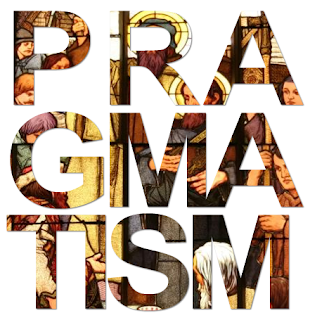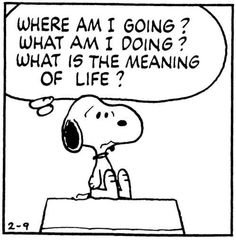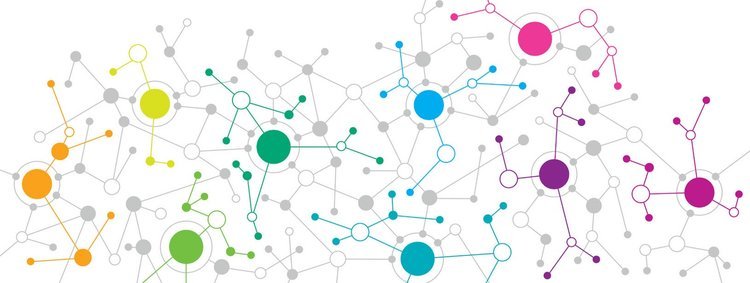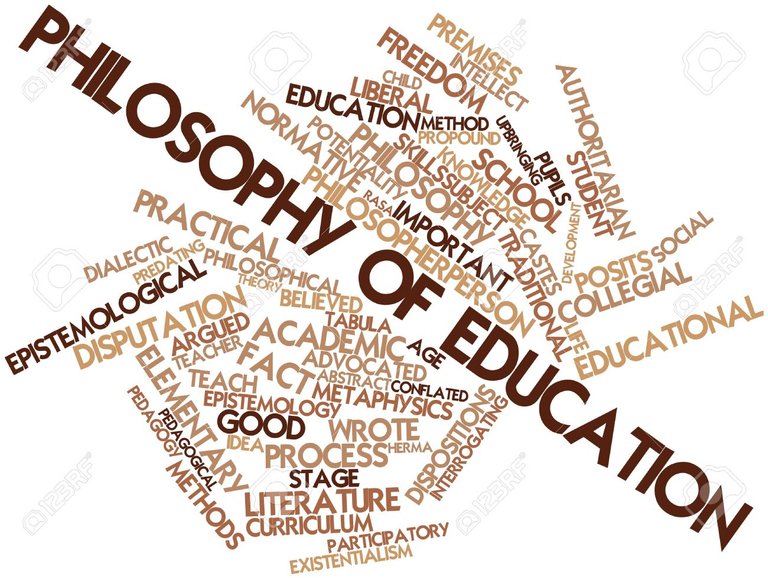Education, Philosophy, and Decentralization
To many Americans, the education system is failing. When asked by Gallup polls to rate the education system at large, they widely rate the education system with Ds or Fs, meaning below average or even failing. Americans seem to think, as judging by crisis language in A Nation at Risk, No Child Left Behind, and Race to the Top, that education is the underlying factor to many economical and political woes that are faced by the nation. So if you decentralize that power and allow each individual to make the decision on their own education, you will have fixed many of the issues that these politicians seem to be discussing as a result of education, no? In the United States, one of the most decentralized nations of the industrialized world, states decide on curricula and standards, but are still seen as lagging behind, despite the overall statistics of performing above average when compared to the rest of the world. Though education, and decentralization, for that matter, may seem to be panaceas to the issues faced by many countries, keep cultural, political, and social contexts in mind when discussing the philisophical foundations that make up the different foci that cirrucla seem to take.
Philisophical Foundations of Curriculum
There are many philosophical foundations that educators have taken some of their cirricula and teaching methods from. These foundations not only influence the way educators go about their classrooms, but also influence decisions made by politicans regarding education, and even how public influence changes education. Each of the major philosophies concerning education will be briefly discussed. Following discussion of the main underlying philosophies, educational philosophies will be discussed. Lastly, decentralization as it applies to these schools of philosophy will be presented.
Four Major Schools of Philosophy
Idealism
To the idealist, the aim of education and the most valuable knowledge is that of the absolute truth and enduring values. For the idealist, education in the subject matters of philosophy and liberal arts is important, succeeded by mathm history, and language. Finally, the sciences are considered to be of lesser importance. It is interesting to consider what a modern idealist would respond to the question, "Do the sciences avoid absolute truths, or not seek them out as well?" Most imporatantly, it is important for the learner to work with abstract concepts and ideas.
Philosophers such as Plato, - who thought that eternal truths exist in the realm of ideas and not the natural physical world - Augustine, - who thought idealism and reason was capable of understanding God - and Hegel, - who thought that knowledge and wisdom could be attained by continually syntehsizing thesis and antithesis, are often referred to as famous idealists. An example of a modern idealist would be William Harris, who popularized kindergarten in the United States.
Realism
To the realist, knowledge is attainable through the physical and natural world: through the learner's senses and reason. Everything is derived from nature and is subject to nature's laws. Subject matters such as history and zoology are imporant, so long as logic and abstract thought are emphasized by the lessons. Aristotle is often considered to be a developer of realism. To him, truth was to be found through ethics, rhetoric, logic, natural science, psychology and language. Aristotle believed that everything had a purpose and that humanity's purpose was thinking. Reading, writing, and arithmetic were designated as the three R's of education based on realist philosophy.
Pragmatism

Pragmatism is based on change, process, and relativity. It proposes that knowledge is an everchanging process. Learning happens as the learner solves problems creatively and it rejects the idea that there exists any universal truths. To the pragmatist, the emphasis should be on critical thinking, which can be defined as making reasoned judgmenrts that are logical, sound, and well thought out. To a pragmatist, the educator should stray from teaching what to think, but how to critically think. "Why?" and "What if?" are more important that "What?", "Who?", or "When?". William James, a psychologist, renounced eternal truths and instead offered up verifaction through testing of ideas. Perhaps most influential, though, was Dewey, who viewed schools to be a specialized place within the grander context of society, and offered the perspective that cirriculum should be centered around the child's experiences, while pushing for the scientific method and problem solving in schools.
Existentialism

A European philosophy developed before American pragmatism that gained popularity after World War II, existentialism emphasizes that people are defined by their decisions. It states that students are free to decide what is studied, although it heavily advocates for attainment of knowledge of the human condition. Educational critics have stated that the philosophy is limited by the structure of most educational institutions and that it is too unsystematic to meet the needs society may have of the learners as they become adults. Curriculum may include anything that lends to the idea of personal freedoms. Any expressive subject area such as the arts and literature are suggested as possible areas of study.
Educational Philosophies
Perennialism
Perennialism is a school of educational philosophy rooted in realism, and it draws and emphasizes past values. Seen as an attempt to make permanent the educational values that inform the unchanging nature of humanity, truth, and virtue, perennialism states that the three R's should be the focus of elementary education (reading, wrtiing and (a)rithmatic), and that Latin, Greek, grammar, rhetoric, logic, and geometry should be the objects of focus during secondary education. Indeed, there is a heavy emphasis on the liberal arts for perennialists. Perennialist curricula rely heavily on the disciplines of language, literature, math, and science. Educators are seen as experts and employ the Socratic method.
Perennialists seek to foster a cultivation of the mind and not just any subject area. They believe that that a liberal arts education would prepare one for any number of jobs, not just those that require the rote-memorization of knowledge. Perennialists focus on the acquisition of organized knowledge, basic learning skills, and values. Some perennialists suggest that the United States is lurching towards educational nihilism, a blatant disrespect for critical thought and academic values. Further, issues such as the decline of social affairs and the economy can be and are blamed on the lack of cognitive rigor and virtuous living. Many scholars of this camp would contend that the issues the United States faces today are not ethnic or racial in nature, but societal.
Essentialism
Much like Perennialism, the focus of Essentialism is to instill the basic knowledge and values, thought to be important in the model citizen, in students. Students took a passive role to the teacher who was considered an expert and model citizen. Essentialism emphasizes the (essential) skills, facts, and concepts that form a subject matter, while disregarding vocational training in support of further academic skills. Essentialists have gone as far to say that the interest of the student is wasteful as applied to curriculum, and the dependence on psychological theories is just as big a waste. Further, the importance of social issues was minimized.
Many back-to-basics education reformers, and in fact, much of the reformation coming out of the United States in regards to education, have been essentialist in perspective. For example, A Nation at Risk, and No Child Left Behind, followed by most recently, The Race to the Top initiatives have all focused on what is essential for students to know, underscoring discipline, training, and serious study. They aim to translate from this higher standardized test scores and hope that educational reform will be a panacea to many of the issues the United States faces.
Progressivism

Progressivism was developed in roots of pragmatic philosophy in response to the perennialist philosophy. It can be traced back to reform writings of Thomas Jefferson, Horace Mann, and John Dewey. Dewey himself claimed that democracy and education are inextricable. To the preogressivist, curriculum should be interdisciplinary and teachers should guide students in problem solving and scientific experimentation ventures developed of their own accord, with the teacher leading the students as they would a group. Progressivists oppose authoritarian methods and corporal punishment, overreliance on texts, rote memorization, undynamic materials that don't seem to correspond to contemporary times, and attempts to divide education from social experiences.
Contemporary progressivism and humanistic education movements have stemmed from progressivism, to go as far as to focus on indifividualized learning in the form of independent projects, dynamic and innovative curricula, courses in special interests and elective studies, work study and pratica, and the relaxation of educational standards. Humanists state that teachers should nurture students and impart a caring way of living, while focusing on intrapersonal knowledge and introspection. A broader focus on the whole person and a support for nonacademic, human competencies have bloomed out of this philosophy and have even been rated as among the most important skills for today's workforce under the constructs of emotional and social intelligences.
Reconstructionism
Reconstructionism focuses primarily on education as a vehicle for social change and reform, stating that the students that are graduating from educational institutions should not simply be agents of corporate greed, but instead agents of change. Focus on global social issues. Reconstructionists tend to fall into camps of globalists, in fact, as well as reconceptualists, who criticize the overly bureaucratic and technocratic methods of curricula in the United States. While other philosophies, namely perennialism and essentialism, focus abundantly on rote memorization of data, reconstructionists focus on active learning in the solving of contemporary issues and the preparation for future society.
Reconstructionists, who focus on social issues and research methods regarding the fields of social sciences, economics, and political sciences, oftentimes including the mystical and the spiritual as perfectly important fields of study in their cirricula, draw the negative attention of many educators as being too student- and social-issue-oriented. Interestingly enough, inequity and inequality in terms of socioeconomic status and access to education have been named as some of the leading non-school factors that impact a student's ability to learn. These issues are of supreme importance to the reconstructionist.
Decentralization

These philosophies can be polarizing and it may be surprising to know that many educators feel that some aspects of each philosophy are correct. Although decentralization would mean a shift in power from one to the many, it may be more panacea than essentialism or progressivism ever hope to be. Although shifts in the localization of power may seem to be a remedy, it is important to note that many of these philosophies seem so controversial against one another because they are posited in an American context. In other countries, where a certain philosophy and culture may lend themselves to one philosophy or another, there may be a clearcut answer. Perennialism and essentialism have been critiqued for being far too Western, and the imposition of those ways of learning on students seeking higher education in different countries may in fact seem like a counterintuitive move. And yet, countries such as South Korea and Japan have thrived while focusing on rote momorization of data while the United States has indeed taken a bit of each philosophy and moved forward.
For example, the United States, one of the more decentralized industrial nations of the world, focuses on education in times of crises, which always seem to be occurring. Interestingly, from the inside, it seems that the education system is failing, and that is much the sentiment of many politicians, students, and parents alike. However, when asked on Gallup polls to rate schools in their area, Americans overwhelmingly tend to rate them with Bs or Cs, constituting a statistical anomaly. How is it that the education system can be failing, yet everyone's individual schools and districts, are not? Perhaps education and decentralization are not the panacea that Americans are looking for to their socioeconomic troubles, but simply a self-rejuvenating scapegoat.



Awesome report. Really impressive article you have written. Gave an opportunity to learn much from it. Its whole period. Or may be a day at school. Alot of learning dude.keep up the good work.
Thank you! I have acquired a liking to education literature, so I'm trying to learn as much as I can over the summer. Hope you're well.
Todo una clase magistral, saludos por el aporte.
Muchas gracias por sus palabras! Se lo agradezco.
Saludos, atento a sus publicaciones.
Man, that's so nice ! I love your articles ! :D
Thanks for your kind words! I hope it was informative.
This is really mind-blowing and life changing..
Thank you so much for that. I truly appreciate hearing that this has been impactful.
Congratulations @aceaeterna! You have completed some achievement on Steemit and have been rewarded with new badge(s) :
Click on the badge to view your Board of Honor.
If you no longer want to receive notifications, reply to this comment with the word
STOPTo support your work, I also upvoted your post!
Do not miss the last post from @steemitboard!
Participate in the SteemitBoard World Cup Contest!
Collect World Cup badges and win free SBD
Support the Gold Sponsors of the contest: @good-karma and @lukestokes
Very informative article. As a human, I think i possess a blend of most, if not all, of these philosophies. As a future educator (hopefully) I will attempt to provide a wide spectrum of methods, as well.
I'm very interested! Tell me your goals! Your aspirations to become an educator intrigue me. Are you going to school for it?
Oh, and also, I have such aspirations too! I imagine I'll be blending a lot of things together.
That's very cool. Where are you from?
The United States. Where are you from? Is it hard to get into the field there?
This is a total lecture, this is a lot of education.
Definitely! :D
Your post had been curated by the @buildawhale team and mentioned here:
https://steemit.com/curation/@buildawhale/buildawhale-curation-digest-06-18-18
Keep up the good work and original content, everyone appreciates it!
Thank you so much. It is truly an honor.